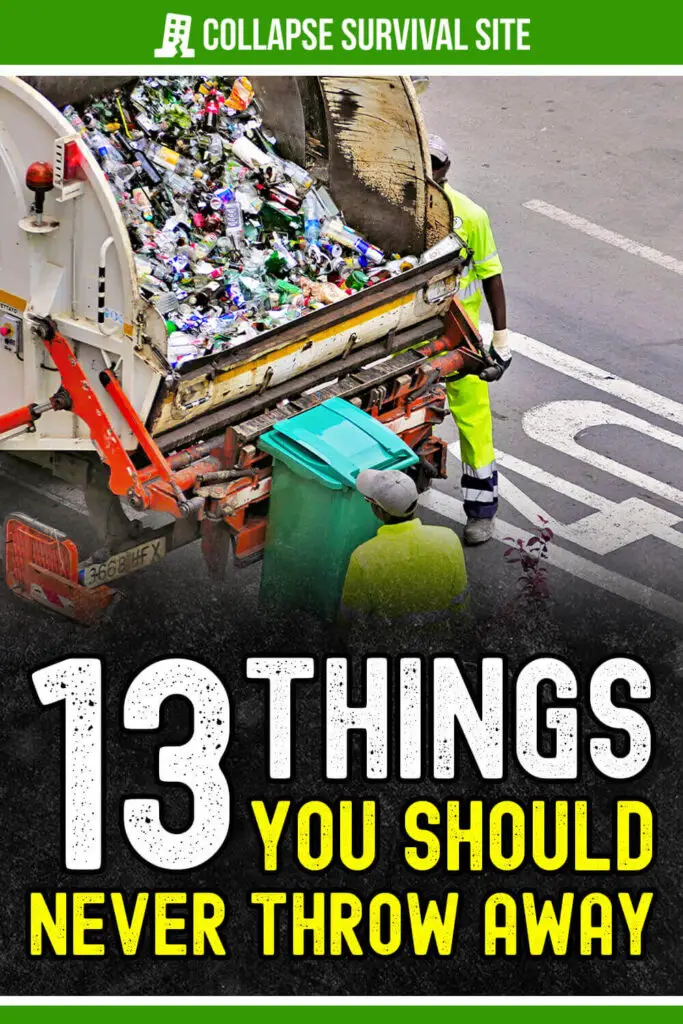Estimated reading time: 12 minutes
For many people, building, repairing, or doing any DIY project requires more than a few trips to the store. What they usually find is that the cost of the things they need adds up quickly, but at least the things they need are there.
However, a time could come when many items that are easy to find now won’t be available. Think back to the height of the Covid-19 pandemic and you’ll remember when many store shelves were empty.
That’s why many people choose to save and store what others might just throw away.
Want to save this post for later? Click Here to Pin It On Pinterest!
Welcome to the Age of Scarcity
We’re seeing more and more shortages of many things we’ve always taken for granted. A lot has to do with lingering problems in the supply chain, and climate change is affecting everything from food and everyday items to raw materials.
And then there’s the growing political and economic instability that keeps appearing in countries around the world. All this is why some people are calling this the beginning of the age of scarcity.
The simple fact is that things will continue to be harder to find and more expensive as the demand for a shrinking supply continues to grow. That’s why it’s time to start thinking about how we can repurpose, reuse, and upcycle everyday items.
From Recycling to Upcycling
Recycling is using something again. Upcycling is about using something for a different use than intended.
- When we save hardware from appliances, furniture, or any other source of nuts, bolts, and screws, we’re recycling.
- When we pry the wood apart from a pallet and build a box, shed, or anything else, we’re upcycling.
But in order to recycle or upcycle anything, first you have to save it and store it. And to be clear, this isn’t about hoarding.
Hoarders tend to indiscriminately save everything with the assumption that they might need it someday. What we're doing is considering the potential use for any item before we throw it away.
With that in mind, here are some things you should stop throwing away.
Hardware
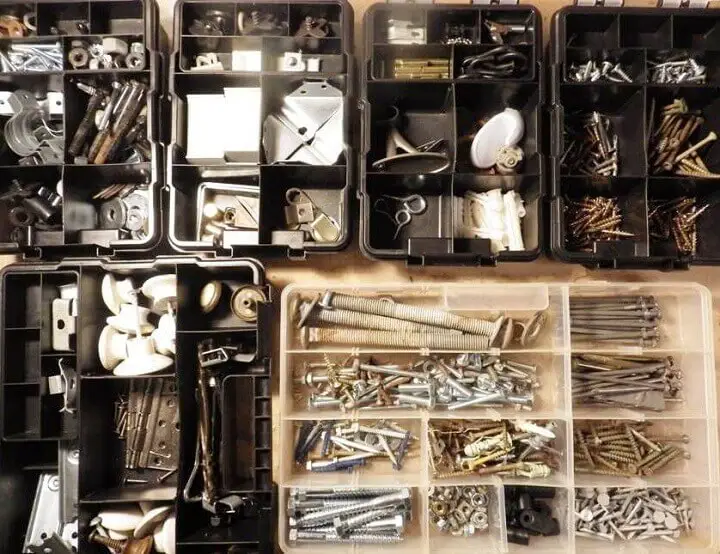
This is an easy one, and we’ve all experienced the frustration of needing something as simple as one screw, nut, or bolt and end up paying $4 to $5 just to get the simplest things to work.
The cost of basic fastening hardware keeps going up, so make sure you do what you can to collect and save them. The only challenge as time goes on is keeping them organized.
Here’s a link to some examples of hardware worth saving and storing.
Hinges, Screws, and Doorknobs from Any Door
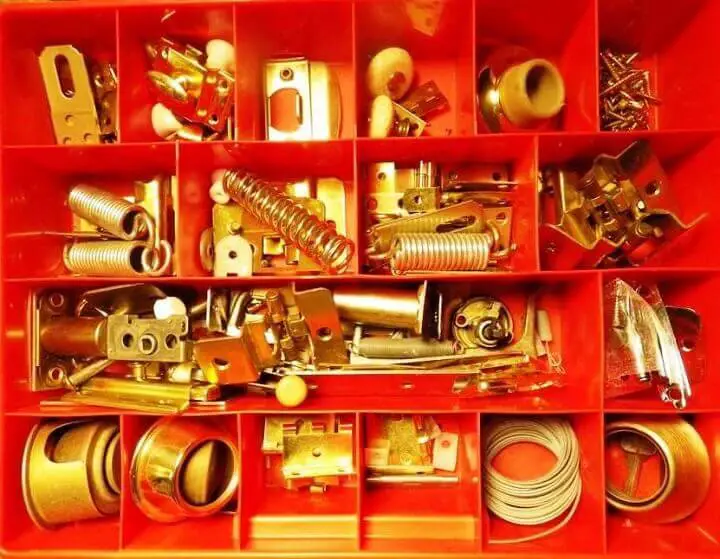
Most times, a new door will come with hinges and knobs, but some don’t. There may also be occasions when you’re building something and need hinges or need to repair something as simple as a door knob.
Having a dedicated box for this kind of hardware is worth thinking about. Store it where you store your tools and other hardware, and give it a label.
Hinges and Handles From Any Cabinet or Drawer
The same thing applies here. If you take a look at prices for the simplest handles and hinges for any cabinet or drawer, you’ll see new value in that old hardware. They’re relatively small and easy to store, and they should have their own dedicated box.
Parts From Large Appliances Like Refrigerators, Washing Machines, and Others
This isn’t about saving or storing the entire appliance, but not only is there a wealth of hardware on these appliances, but the motors often still work and can be used to power anything from an improvised table saw to other inventions.
There’s more to consider. Even the copper wires in the motors has value at a scrap yard as the price of copper continues to rise. Then again, that same scrap yard will pay you for the metal scrap value of the entire appliance, assuming you can transport it.
Electrical Hardware
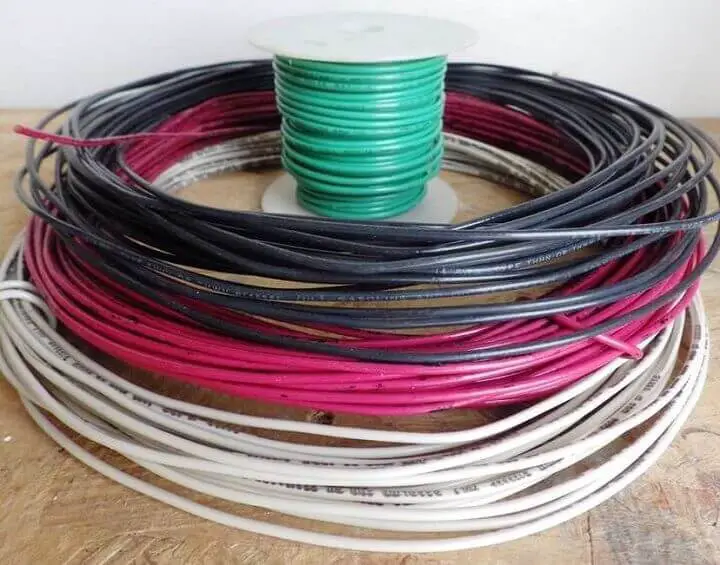
Anytime we do any level of electrical work, we sometimes replace or come across surplus parts and pieces.
Keep them. They can usually be stored in a relatively small space, and when parts aren’t available or a replacement is just too expensive, you have a fighting chance to find something in the electrical bin.
Obviously, you wouldn’t want to save any electrical hardware like an outlet or switch that has failed, but if you’re replacing anything for cosmetic reasons or just as an update, keep the stuff that works.
Plumbing Hardware
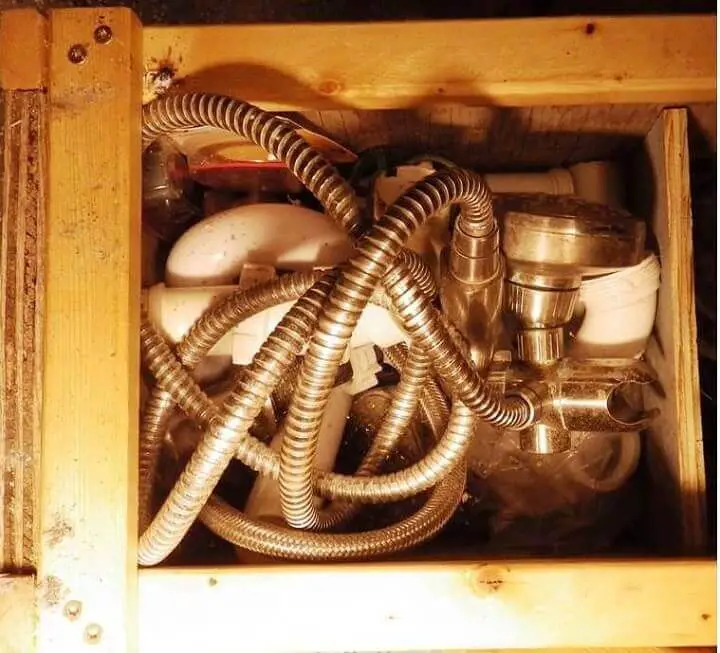
Many of us have spent too much time under a sink replacing a u-trap, faucet or valve. We feel better about replacing things with new parts, but some of those old parts may be worth keeping, especially the copper and PVC.
Most should be cleaned and soaked in water and bleach, but there are many times when plumbing becomes an improvised task and we need a short length of pipe to get everything to fit.
Speaking of PVC, never throw away any PVC scraps. The variety of things you can make is endless and the ability to easily cut and glue pieces together transcends the needs of conventional plumbing.
If you save some of those old parts, you’ll not only save some money but avoid yet another trip to the hardware store. If you are replacing any part or piece that was leaking, do yourself a big favor and definitely throw it out.
Then again, if the hardware stores aren’t open for some reason or you live remotely, you’ll have a fighting chance to fix the plumbing if you took the time to save the good old stuff.
Lumber Scraps
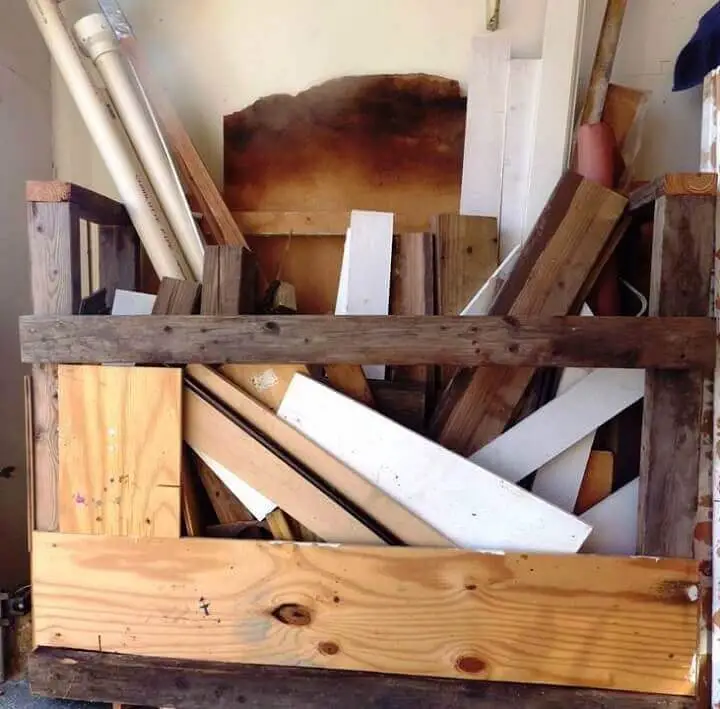
Any time you take anything apart made of wood, whether it’s shelving or cabinets, there’s going to be a lot of scrap wood. Take a good look at what you have and think about saving it. There’s a lot you can do with wood scraps.
Tools
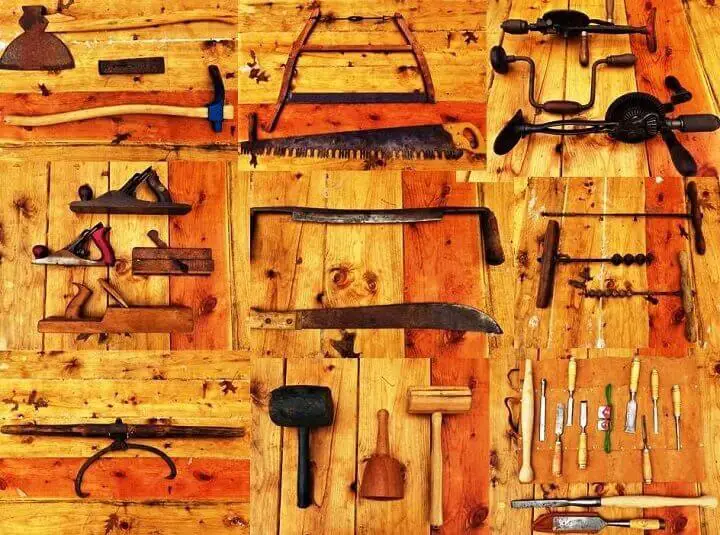
Some of us just can’t throw away an old tool, and that may be wise. Just because it doesn’t look as good as it used to or even if it needs some repair, most tools don’t take up too much space.
Power tools are another story. If the power tool simply doesn’t work, it may be best to toss it. But don’t forget to cut off the power cord and plug and store it – just in case.
Glass Jars With Lids
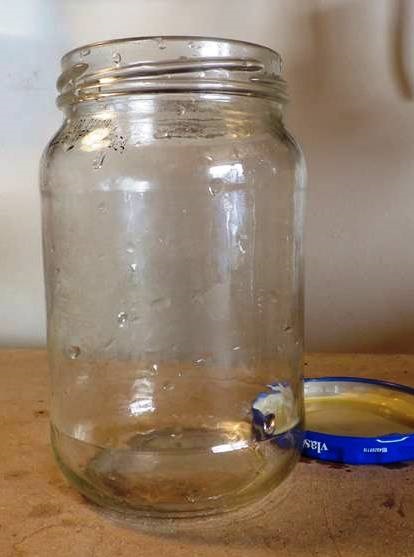
Pickle jars are the best example, and old glass jars can be used for everything from storing those nuts and bolts you’re saving to actually reusing them to store food.
Most won’t have the hermetically sealed properties of a standard canning jar and lids, but for short-term food storage or storage in a refrigerator or root cellar, they will be highly valued when you run out of canning jars or simply can’t find or afford more.
Then again, there are many more possibilities for glass jars that might make you look at every empty glass jar a bit differently. And speaking of food…
Leftovers

Leftovers should be a regular part of the next day’s meal. With the price of food continuing to increase, it just makes sense to think about all the ways you can make another meal leftovers.
Pallets
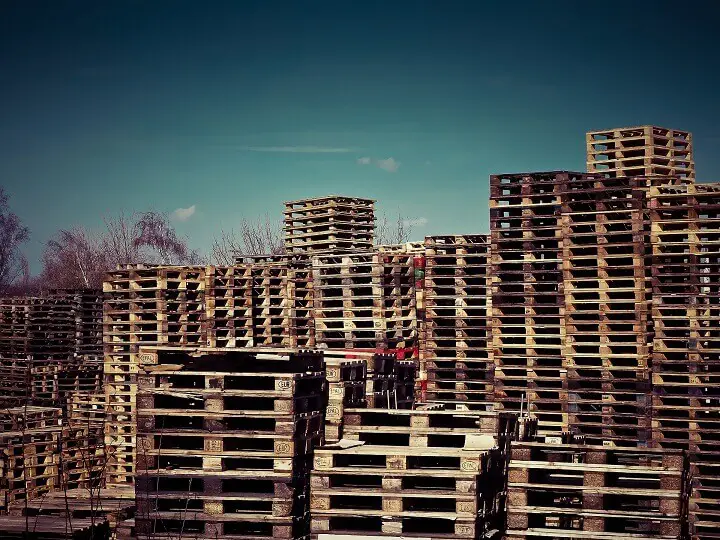
Many items bought in bulk, from wood pellets to top soil, are delivered on wooden pallets. Even some appliances and lawn equipment are delivered this way.
They’re a pain to dispose of, but if you take the time to pull them apart, you’ll have some great rough timber for building anything from raised beds in the garden to shelves for a garage, shed, or barn.
Some people have actually built sheds and tiny homes from pallet wood. In a pinch, you can even use it as firewood.
Storage Bins
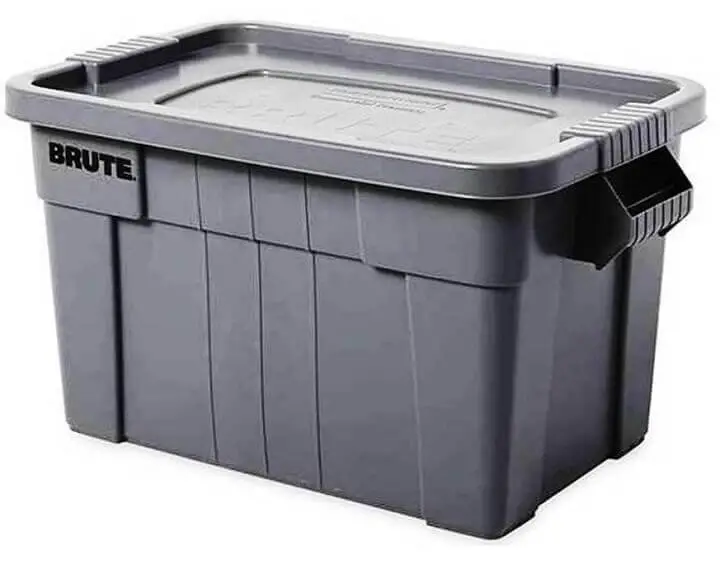
Anyone who has moved to a new home or apartment is familiar with storage bins that make packing and moving easier. How many of us see them as disposable after the move?
Their value and uses might surprise you. They stack together easily and can make for great storage for things you choose to save or for a quick way to pack and go in an evacuation.
You could even use them to make something as basic as a vermicomposter or as instant raised beds in the house or garden.
Gold from Electronics
This falls squarely in the category of recycling, but many circuit boards have varying amounts of gold imbedded in them. There are ways to remove the gold, and given the price of gold these days, it can be worth the effort.
You’ll have to read a bit about it or watch this YouTube video, but once you see where the gold is embedded, you might think twice about tossing electronics.
Newspaper

Here’s another use for those old storage bins. Store old newspapers. You can make everything from fire logs to toilet paper and even build a wall made with bricks from papercrete.
Tin Cans
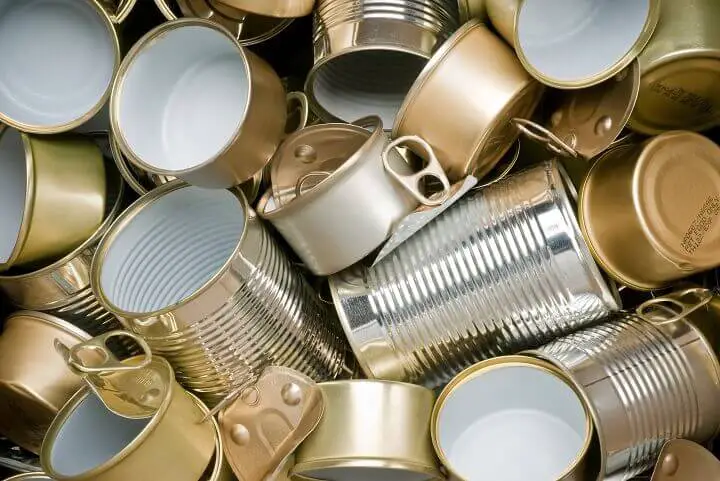
You don't have to save every tin can that comes out of your pantry, but an empty and rinsed soup or tomato can will make a good container for tools and hardware, and there are numerous things you can improvise from tins cans.
At the least, they’re a good source of pliable sheet metal allowing you to improvise anything from a knife to a candle lantern.
Old Fabrics, Bedding, and Clothes
At a minimum, you can tear up old clothes, sheets and blankets to make shop towels for the garage, basement, or shed. A pack of shop towels from a home center or online costs about $10 bucks, so it’s worth at least saving a little money.
More ambitious projects could result in you using the fabrics to sew your own clothes or repair clothing. In fact, there are many things you can upcycle from old clothing, assuming you have the inclination to do those kinds of things.
A lot depends on your sewing skills and your desire to do something like that. The standard caution is that boxes of old clothes are one of the most common things that show up packed floor to ceiling in the boxes of a hoarder.
Keep what you think you may realistically need and at the least save a little money on those shop towels.
When is Enough, Enough?
It’s easy to get carried away with saving and storing things, unless they’re small and easily contained like hardware or tools. The question to ask is how much of anything will you realistically need and do you have the storage units and space to effectively store it?
If not, it won’t be long before spouses, family, and friends start to wonder what you’re doing and start asking awkward questions. Take the time now and then to think about how much you’ve saved and stored, and if appears to be too much or not as valuable as you once thought – toss it.
A good argument for a bit of excess inventory on potentially upcycled materials is that they may someday have barter value. That’s a personal decision, but even it’s helping a family member to find that odd nut or bolt ,it’s worth the time and effort to save many of these items and at least make things easier for everyone.
Is There More?
No doubt. What you choose to keep and repurpose, reuse, or upcycle has a lot to do with your lifestyle, your location, and your situation. Someone living in an apartment in the city will have different needs than someone living on a homestead in the country.
The significant concern is for anyone enduring a societal collapse like the ones occurring in Ukraine, Myanmar, Sudan, Syria and other places around the world. At times like those when nothing is for certain, you can't afford to waste anything. It’s a lesson worth remembering for all of us.
Like this post? Don't Forget to Pin It On Pinterest!
Thanks for reading! If you want to start preparing for the collapse, check out our list of free books and manuals and our list of recommended supplies.
